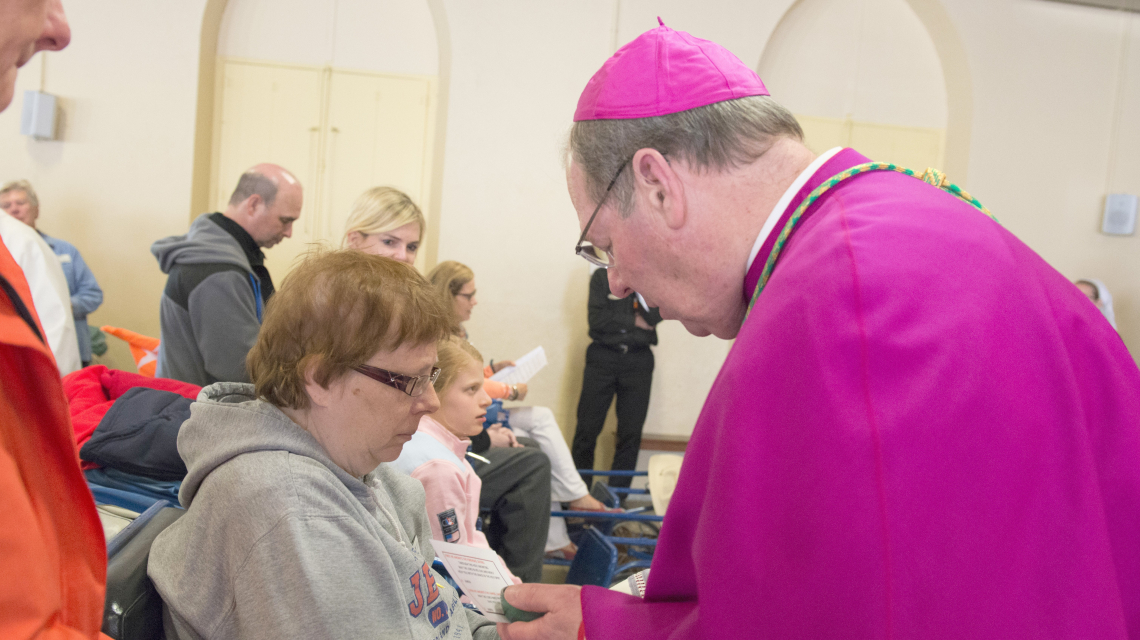Comfort the Sorrowful

“For I was … ill and you cared for me … Whatever you did for one of these least brothers [or sisters] of mine, you did for me” (Mt 25:35-40).
To comfort the sorrowful is to be open to listening and comforting those who are dealing with grief. Even if we aren't sure of the right words to say, our presence can make a big difference. The visit, though a good thing, is not an end in itself but rather an opportunity to recognize that this person is a manifestation of the suffering Christ and that a loving, supportive presence brings solace and comfort. Often this work of mercy begins at home. Below are some suggestions to consider:
- Lend a listening ear to those going through a tough time.
- Make a home cooked meal for a friend who is facing a difficult time.
- Write a letter or send a card to someone who is sick, troubled, lonely, or in a nursing home.
- Pray for all who suffer in body, mind, and spirit, that they be strengthened and comforted through our prayers and acts of mercy.
- Add someone who is sick or in need of comfort to your daily prayer list. Include those suffering from mental illness. Also remember to pray for hospital staff members, health-care workers, and caregivers.
Stories of Service from around our Diocese
- Consoling and guiding the grieving - Harvest magazine
- Chaplains provide spiritual comfort to the sick - Harvest magazine
Scripture
“He will wipe every tear from their eyes, and there shall be no more death or mourning, wailing or pain, [for] the old order has passed away” (Revelation 21:4).
“The Lord is close to the brokenhearted, saves those whose spirit is crushed” (Psalms 34:19).
“I will turn their mourning into joy, I will show them compassion and have them rejoice after their sorrows” (Jeremiah 31:13).
Bishop Robert Deeley
“The Son of God, he brings into the world the very presence of God’s healing. The mercy of God is visible in the mission of Jesus. It is compassion. It is love. St. Augustine said, “Of necessity we must be sorrowful when those we love leave us in death. Although we know that they have not left us behind forever but only gone ahead of us, still when death seizes our loved ones, our loving hearts are saddened by death itself. Thus, the apostle Paul does not tell us not to grieve but not to grieve like those who are without hope. Let us grieve, therefore, over the necessity of losing our loved ones in death but with the hope of being reunited with them. If we are afflicted, we still find consolation. Our weakness weighs us down, but faith bears us up. We sorrow over the human condition but find our healing in the divine promise.”









